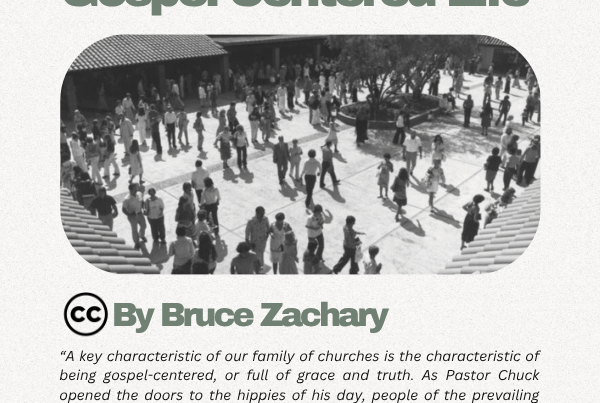
In part one of this article, I shared four tips I gleaned from the New York Times bestseller: The Power of Habit: Why we do What we do in Life and Business by Charles Duhigg. I’ll add to it with steps five through nine here:
5. DEVELOP A KEYSTONE HABIT
Duhigg allocates a large portion of his writing on research that shows that people who create a “keystone habit” will trigger widespread change in many other areas of their life. For example, people who start exercising also begin to eat healthier, feel less stress and even spend less on their credit cards!¹ Essentially, keystone habits help to create “small wins,” which in turn boosts your overall motivation and gives you momentum to build even more good habits in your life. For the Christian, the keystone habit that will affect the most God-honoring change in life is developing a consistent habit of daily devotions. Starting each day with the Lord will be the most beneficial spiritual discipline you ever develop!
6. STRENGTHEN YOUR SELF-CONTROL IN OTHER AREAS
The author cited experiments that showed self-control as a muscle that could grow. He wrote, “As people strengthened their willpower muscles in one part of their lives – in the gym or a money management program – that strength spilled over into what they ate or how hard they worked. Once willpower became stronger, it touched everything.” He went on to say, “When you learn to force yourself to go to the gym or start your homework or eat a salad instead of a hamburger, part of what’s happening is that you’re changing how you think…People get better at regulating their impulses. They learn how to distract themselves from temptations. And once you’ve gotten into that willpower groove, your brain is practiced at helping you focus on a goal.”²
Christians are actually strengthening their self-control when they consistently practice things like the spiritual discipline of fasting, praying for longer periods of time and even saying no to social events to serve at church. When the alarm goes off in the morning for the daily devotion routine, they are more able to get out of bed and stay focused as they have their quiet time with God, because they’ve already put in the hard work of a disciplined life. Think about the areas in your life that need self-control, self-denial and submission to the Holy Spirit. Practice disciplining yourself in these areas, and you’ll also set yourself up for success in your daily Bible study habits.
7. PREPARE IN ADVANCE HOW YOU’LL HANDLE OBSTACLES
Duhigg shares about a medical study where participants were asked to write down their rehab goals each week. Those that followed this request recovered quickly in contrast to the delayed recovery of those who didn’t write anything down. It doesn’t seem like written goals should make much of a difference, but there was a striking transformation in the results. After correlating the data, they found a common thread in their goals, “They focused on how patients would handle a specific moment of anticipated pain.”³ One patient knew it hurt to stand up from the couch to walk to the bathroom, so he resolved to automatically take the first step immediately so he wouldn’t be tempted to sit back down again.
It would seem that to take some time each week to write down your daily devotion plan and think through some potential obstacles helps to build perseverence and gives you a better chance of success in establishing the habit. I recommend taking 15 minutes each Sunday for the first month you are trying to establish a daily devotion routine to write down the answers to the following questions (along with others you find helpful):
1. My quiet time goals for this week are ____________?
2. If I don’t feel like getting out of bed in the morning, I am going to ___________.
3. If I oversleep in the morning, I am going to instead read at this time ___________.
8. DEVELOP SPIRITUAL DISCIPLINES IN COMMUNITY
Duhigg interviewed a man who climbed out of poverty and asked him for the secret to his success. The man said, “I don’t really know…My mom always said, ‘Your going to be the first person to go to college, you’re going to be a professional, you’re going to make us all proud.’ She would ask these little questions, ‘How are you going to study tonight? What are you going to do tomorrow? How do you know you’re ready for your test?’ It trained me to set goals.”4
Many Christians share the same goals of reading the Bible every day to meet with the Lord, but find themselves in the same position as others, unable to make a habit out of it. Why not challenge a few friends to start this habit the same time you do? Contact each other throughout the week to encourage each other to “not grow weary in doing good” (Galatians 6:9). Brainstorm each other’s game plans and offer suggestions. The community accountability and encouragement can be a healthy force in developing a habit early on.
9. DON’T FORGET IT’S ALL ABOUT GOD’S GRACE!
A not-so-surprising discovery I found in this book was that Christians actually have the competitive advantage in creating lasting habits. The author’s research on Alcoholics Anonymous showed that one of the main secrets to lasting change was “belief,” specifically in God.5 This shouldn’t surprise us since our God desires to change us. Paul tells us in Romans 12:2 to, “…Not be conformed to this world, but be transformed by the renewing of your mind.” If God is asking us to change, then He is going to enable us by His grace to make those changes. Above all else, depend on the Lord as you seek to develop spiritual disciplines that will conform you into the image of Christ!
I believe the mature believer can profit from much of this secular research, while ignoring any parts that bring glory to man or leave out God all together. There is certainly a “man is the captain of his own destiny” type of feel to this book with which I wholeheartedly disagree. Yet the research and scientific discoveries are strong enough that they should not be discounted entirely.
¹Duhigg, Charles. “The Habit Loop.” The Power of Habit: Why We Do What We Do in Life and Business. New York: Random House, 2012. 109. Print.
²Ibid
³Ibid
4Ibid
5Ibid









